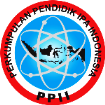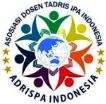Systems Thinking in Science Education: A Bibliometric Study over the Past Decade
Abstract
This study aims to explore the publication trends in systems thinking within science education from 2014 to 2023, utilizing VOSviewer, Excel, and Biblioshiny for bibliometric analysis, to better understand how systems thinking is integrated into educational practices and its impact on managing complex systems. Analyzing 328 of 880 documents from the Scopus database, results show a gradual increase in publications, with leading journals including Sustainability Switzerland and the Journal of Chemical Education. The United States leads in research output, followed by China and Malaysia. The University of Colorado Boulder and Harvard Medical School are the most productive affiliations. Prominent authors include Yehudit Judy Dori and Jed D. Gonzalo. The most cited document by Grover et al. with 251 citations. Research trends highlight popular topics such as students, education, curriculum, learning, and teaching. However, gaps remain in connecting systems thinking with emerging fields like artificial intelligence, problem-based learning, problem-solving, decision-making, and STEM. These findings guide future research, resource allocation, and strategy formulation to enhance systems thinking in education. Further research using diverse data sources and methodologies is recommended to bridge gaps and improve the application of systems thinking principles.
Keywords: bibliometric analysis, systems thinking, science education
Full Text:
PDFReferences
AlRyalat, S. A. S., Malkawi, L. W., & Momani, S. M. (2019). Comparing Bibliometric Analysis Using PubMed, Scopus, and Web of Science Databases. JoVE, 152, e58494. https://doi.org/doi:10.3791/58494
Bozkurt, N. O., & Bozkurt, E. (2024). Systems Thinking in Education: A Bibliometric Analysis. Egitim ve Bilim, 49(218), 205–231. https://doi.org/10.15390/EB.2024.12634
Czichos, H. (2022). Introduction to Systems Thinking and Interdisciplinary Engineering. Springer Nature. https://doi.org/10.1007/978-3-031-18239-6
Donthu, N., Kumar, S., Mukherjee, D., Pandey, N., & Lim, W. M. (2021). How to conduct a bibliometric analysis: An overview and guidelines. Journal of Business Research, 133(March), 285–296. https://doi.org/10.1016/j.jbusres.2021.04.070
García-Ávila, F., Avilés, A., Cabello-Torres, R., Guanuchi-Quito, A., Cadme-Galabay, M., Gutiérrez-Ortega, H., Alvarez Ochoa, R., & Zhindón-Arévalo, C. (2023). Application of ornamental plants in constructed wetlands for wastewater treatment: A scientometric analysis. Case Studies in Chemical and Environmental Engineering, 7, 100307. https://doi.org/10.1016/j.cscee.2023.100307
Gilissen, M. G. R. (2021). Fostering students’ systems thinking in secondary biology education. https://dspace.library.uu.nl/handle/1874/404509
Grover, S., Pea, R., & Cooper, S. (2015). Designing for deeper learning in a blended computer science course for middle school students. Computer Science Education, 25(2), 199–237. https://doi.org/10.1080/08993408.2015.1033142
Hemmingsen, M. N., Lau, A., Larsen, A., & Ørholt, M. (2023). The role of bibliometric analyses in plastic surgery—advantages and disadvantages. Gland Surgery; Vol 12, No 7 (July 31, 2023): Gland Surgery. https://gs.amegroups.org/article/view/115700
Hossain, N. U. I., Dayarathna, V. L., Nagahi, M., & Jaradat, R. (2020). Systems thinking: A review and bibliometric analysis. Systems, 8(3), 1–26. https://doi.org/10.3390/systems8030023
Hrin, T. N., Milenković, D. D., Segedinac, M. D., & Horvat, S. (2016). Enhancement and assessment of students’ systems thinking skills by application of systemic synthesis questions in the organic chemistry course. Journal of the Serbian Chemical Society, 81(12), 1455–1471. https://doi.org/10.2298/JSC160811097H
Keating, C. B., Katina, P. F., Jaradat, R., Bradley, J. M., & Hodge, R. (2021). Systems Thinking: A Critical Skill for Systems Engineers. INCOSE International Symposium, 31(1), 522–536. https://doi.org/https://doi.org/10.1002/j.2334-5837.2021.00852.x
Kyungsuk, B., Jaehyuk, C., Yejin, M., Deokyoung, J., Taeho, L., & Yeon-a, S. (2022). A Study on the Development and Feasibility of Educational Programs Using Systems Thinking in Science Education. Korean System Dynamics Review, 23(2), 5–30. https://doi.org/10.32588/ksds.23.2.1
Lavi, R., & Dori, Y. J. (2019). Systems thinking of pre- and in-service science and engineering teachers. International Journal of Science Education, 41(2), 248–279. https://doi.org/10.1080/09500693.2018.1548788
Lazarides, M. K., Lazaridou, I.-Z., & Papanas, N. (2023). Bibliometric Analysis: Bridging Informatics With Science. The International Journal of Lower Extremity Wounds, 15347346231153538. https://doi.org/10.1177/15347346231153538
Mills, J. J. (2022). (Contemporary System Thinking) Transformative education for regeneration and wellbeing:A Critical Systemic Approach to Support Multispecies Relationships and Pathways to Sustainable Environments (Y. C. Nantes, Ed.). Springer Nature. https://doi.org/https://doi.org/10.1007/978-981-19-3258-8
Mongeon, P., & Paul-Hus, A. (2016). The journal coverage of Web of Science and Scopus: a comparative analysis. Scientometrics, 106(1), 213–228. https://doi.org/10.1007/s11192-015-1765-5
Orgill, M. K., York, S., & Mackellar, J. (2019). Introduction to Systems Thinking for the Chemistry Education Community. Journal of Chemical Education, 96(12), 2720–2729. https://doi.org/10.1021/acs.jchemed.9b00169
Rochman, S., Rustaman, N., Ramalis, T. R., Suhandi, A., Supriyadi, S., & Ismail, I. (2024). Analysis of Bibliographic Systems Thinking: A Review in the Science Education. KnE Social Sciences, 2024, 1426–1438. https://doi.org/10.18502/kss.v9i13.16082
Roslan, S., Hasan, S., Zaremohzzabieh, Z., & Arsad, N. M. (2021). Big five personality traits as predictors of systems thinking ability of upper secondary school students. Pertanika Journal of Social Sciences and Humanities, 29, 251–269. https://doi.org/10.47836/pjssh.29.s1.14
Seher Budak, U., & Defne Ceyhan, G. (2024). Research trends on systems thinking approach in science education. International Journal of Science Education, 46(5), 485–502. https://doi.org/10.1080/09500693.2023.2245106
Shaked, H., & Schechter, C. (2017). Systems Thinking for School Leaders: Holistic Leadership for Excellence in Education. Springer Nature.
Stirgus, E., Nagahi, M., Ma, J., Jaradat, R., Strawderman, L., & Eakin, D. (2020). Determinants of Systems Thinking in College Engineering Students: Research Initiation. August 2006. https://doi.org/10.18260/1-2--32626
Van Eck, N. J., & Waltman, L. (2010). Software survey: VOSviewer, a computer program for bibliometric mapping. Scientometrics, 84(2), 523–538. https://doi.org/10.1007/s11192-009-0146-3
Wycis´lak, S & Radin, M. A. (2015). The Fundamentals of Systems Thinking, Management & Effective Leadership. In M. A. Radin (Ed.), Angewandte Chemie International Edition, 6(11), 951–952.
DOI: http://dx.doi.org/10.24014/jnsi.v6i2.31682
Refbacks
- There are currently no refbacks.

Journal of Natural Science and Integration
E-ISSN: 2620-5092 P-ISSN: 2620-4967
Published By:
Department of Science Education, Faculty of Education and Teacher Training,
State Islamic University of Sultan Syarif Kasim Riau, Indonesia
Mailing Address:
Jl. H.R Soebrantas Km. 15 No. 155
Kelurahan Simpang Baru
Kecamatan Tuah Madani, Pekanbaru, Riau, Indonesia
Email: jnsi.tadrisipa@uin-suska.ac.id
Indexed By:
Journal of Natural Science and Integration is licensed under a Creative Commons Attribution 4.0 International License.


_-_Copyy2.png)






.jpg)
.png)
.jpg)
.jpg)




